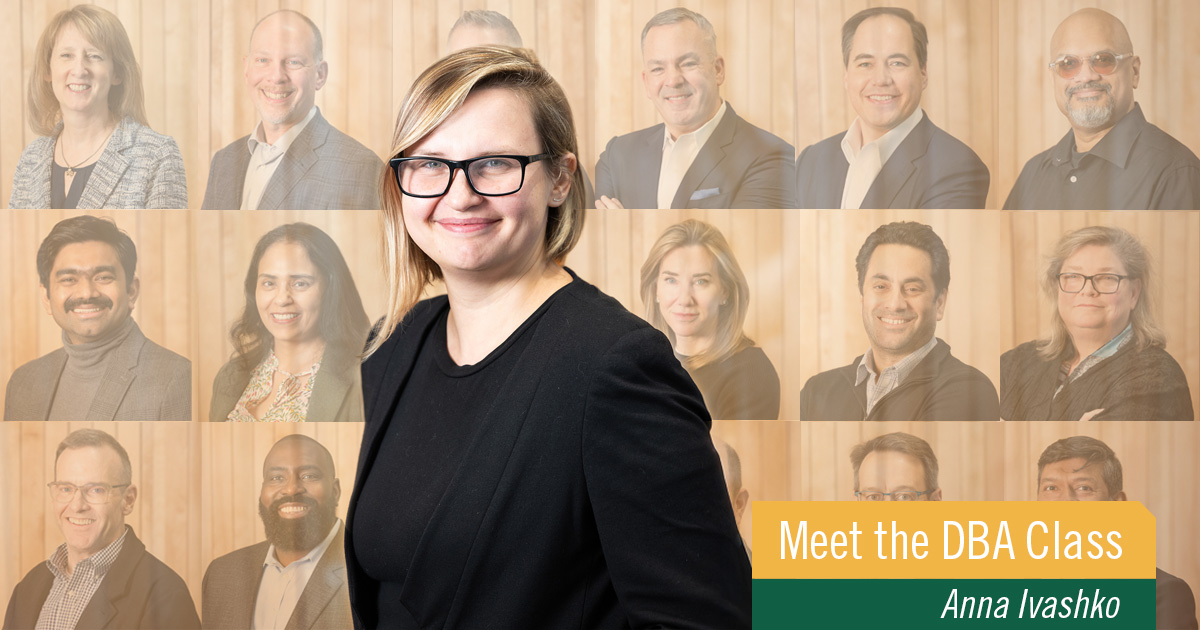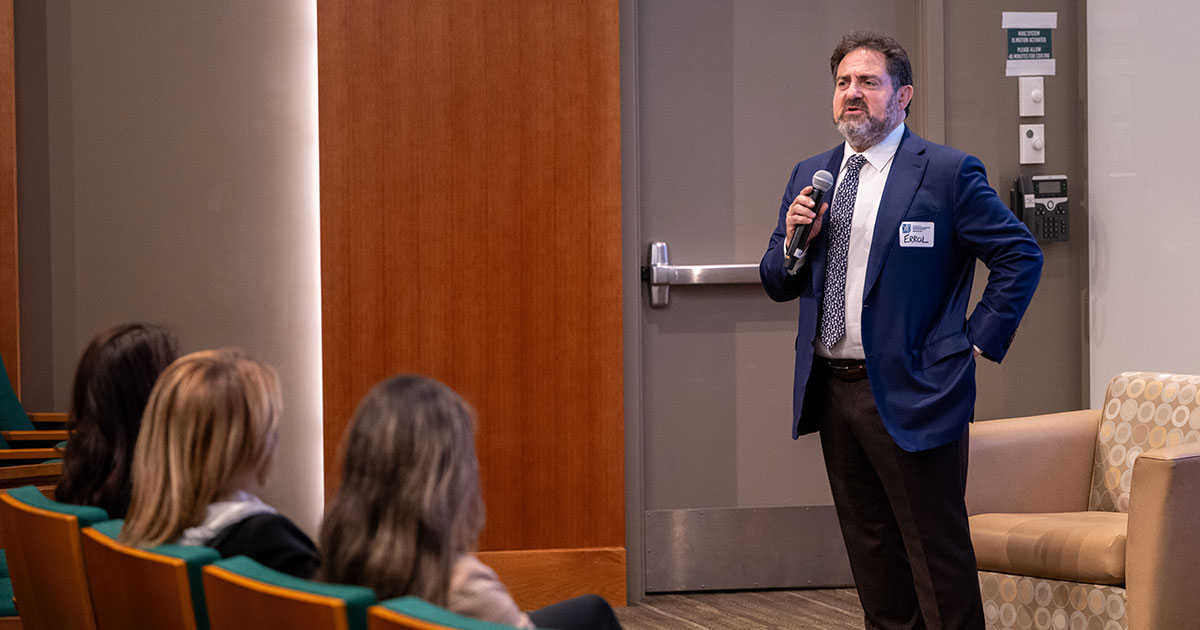Good Fellows: Creating Value in the Community by Serving on Nonprofit Boards
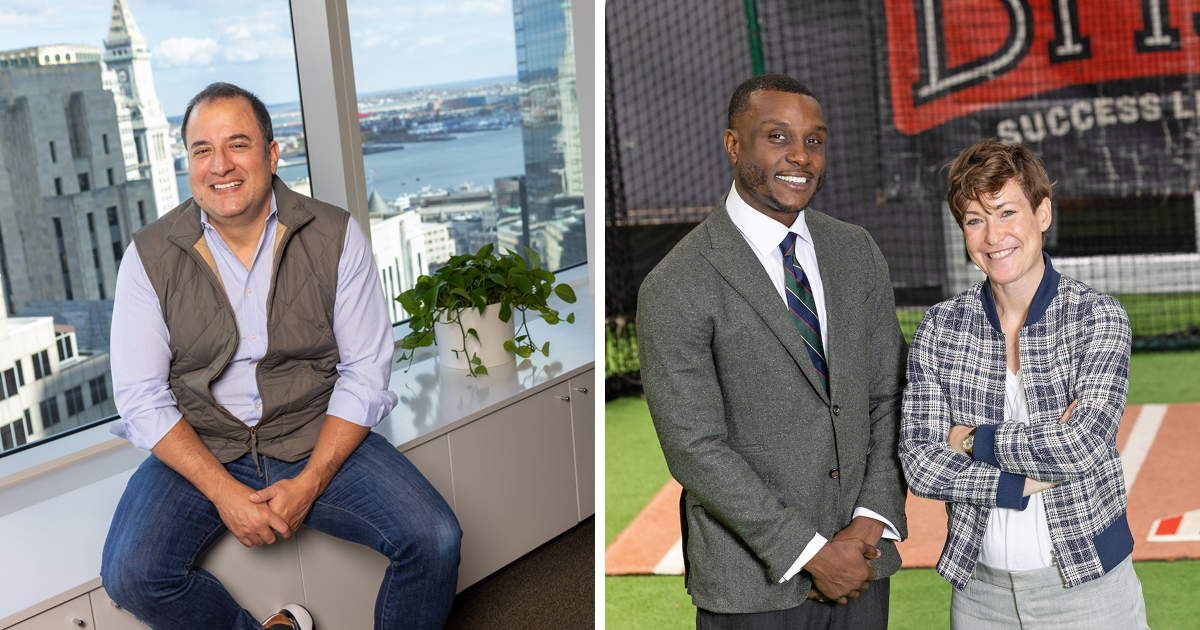
Babson students and alumni transform the business world with entrepreneurial leadership at the helm of established companies and bold startups. They also innovate behind the scenes, and the Babson Board Fellows program drives that capability.
BABSON MAGAZINE: Read the complete Winter 2024–2025 issue.
The experiential program—one of the longest-running programs at the Institute for Social Innovation—places MBA students and alumni as nonvoting members of Boston-area nonprofit boards.
From September through May, fellows gain decision-making and mentorship experience while boards benefit from the entrepreneurial leadership and insights that Babson students are uniquely positioned to deliver to create social value in their communities.
Priceless Opportunity
When the Lenny Zakim Fund (LZF) wanted to elevate its grant-making capacity in September 2023, it partnered with Babson to work with Moris Castillo MBA’24. As a 501(c)(3) charitable organization, LZF deploys significant grants to grassroots organizations throughout eastern Massachusetts that confront social, racial, and economic injustice.
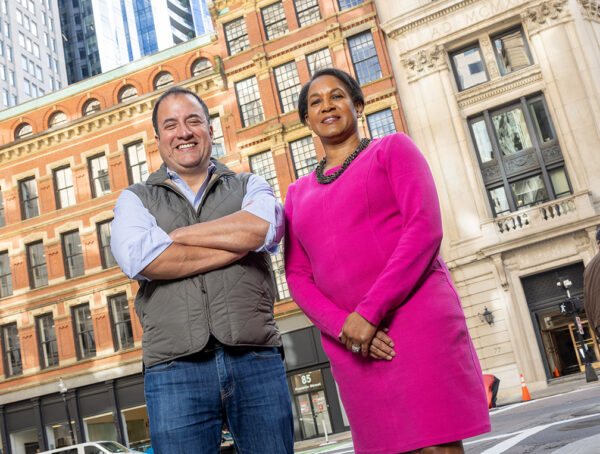
“Mo dove into the deep end with us, going on site visits and participating in staff meetings,” says Allison Picott, LZF executive director. “It wasn’t long into his tenure that the board and I saw how committed—and also, frankly, how delightful—he is.”
Castillo evaluated proposal applications and personally visited prospective LZF grantee partner organizations. Evaluating potential funding recipients is an ambitious undertaking, because LZF’s applicants primarily focus on areas of fundamental and often heart-wrenching need, including food insecurity and civil rights advocacy.
But Castillo was in the unique position to make informed recommendations. The mission was personal as well as professional, because he arrived at Babson as an entrepreneurial success story himself. He came to the United States from Bogota, Colombia, as a teenager and rented a room for $300 per month while finishing high school. A mix of loans and odd jobs, from cafeteria work to sailing instruction, funded his undergraduate education. At Babson, he planned to hone his business skills in tech sales.
Advice from Associate Professor of Practice Leslie Charm ’64 inspired him to apply to the program.
“He told me: ‘It’s great that MBA students want to run their own companies, but being a part of boards is an important way to build a network and to understand your community,’ ” Castillo recalls.
“For companies, there’s value in bringing in a business leader who acts like and takes on the responsibility of a board member with an entrepreneurial mindset.”
Cheryl Kiser, founding executive director of the Institute for Social Innovation at Babson
Castillo was gratified to learn that many of LZF’s grantee partners were a few blocks from his Jamaica Plain home—and so close to his heart. At LZF, he supported funding for LGBTQIA networking groups to combat isolation; programs that teach prisoners agricultural skills to prepare for practicable work on release; and inner-city after-school programs, which once made a lasting difference in his own life.
“Both of my parents worked. They were blue-collar people. As a kid, thank God for the Boys & Girls Club,” he says. “The Babson Board Fellows program was priceless because I had the opportunity to apply not only my academic and work experience but also my life experience. It hasn’t been easy to get where I am. I had people mentor me along the way, and it feels good to return the favor.”
In fact, Castillo was so dynamic that he secured a voting board membership after his fellowship tenure concluded. Picott was impressed by Castillo’s magnetism and ability to connect mission with monetary support.
“For companies, there’s value in bringing in a business leader who acts like and takes on the responsibility of a board member with an entrepreneurial mindset,” says Cheryl Kiser, founding executive director of the Institute for Social Innovation at Babson, which marked its 15th anniversary in November. “This is not an internship. Fellows are selected based on their capacity to add clear value to a social impact organization.”
A Different Level
This was the case at Roxbury-based youth development organization The BASE, where urban youth receive year-round athletic training coupled with college access support, access to health and nutrition services, and professional development opportunities.
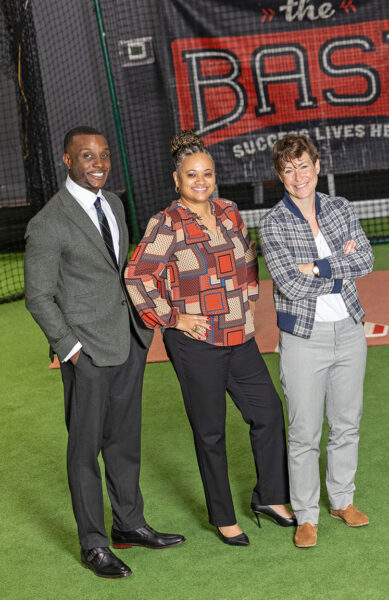
Athletes and professional workforce developers Walter Weekes Jr. MBA’21 and Sarah Wilson MBA’17 were so successful at building The BASE’s career development program framework that they were invited back for a second-year fellowship.
“Walter’s and Sarah’s previous experience working in the nonprofit sector with the population of young people that we serve brought a different level of commitment to the projects and the organization as a whole than was expected from the fellowship program, honestly,” says Chief Organization Officer Stephanie Monteiro-Merritt. “They were all in, hence the reason for a second fellowship term with The BASE. They became part of The BASE family.”
Weekes and Wilson had impressive experience in the nonprofit world and were also longtime athletes, bringing a multidimensional perspective to the organization. Weekes was a semi-professional basketball player and had directed the Ready to Work program at the Boys & Girls Club of Boston. Now, he is the founder of Innovative Catalyst, a strategy and innovation consulting firm supporting businesses in their evolution.
Wilson played ice hockey as a Harvard University undergraduate and later handled outreach and recruitment at Year Up, the young-adult job-training organization, while earning her Babson MBA.
“When we came to The BASE, their workforce development needed support and development to create internships and cross-learning experiences. Everyone won’t be a professional athlete, but ideally, everyone will become a professional,” Weekes says. “We were able to come in as a pair of fresh eyes and fresh minds to support Stephanie as the chief organization officer to efficiently address gaps and make change within the organization.”
Reigniting Passion
Wilson also was gratified with the depth and intensity of the fellowship role. She and Weekes were treated as influential members of the team, trusted and relied upon for true change.
“Walter and I both have an athletics and workforce development background. We were really able to bring that to The BASE—and we got really lucky, too,” Wilson says. “Not only did we have the experience to attend board meetings, but we also got a project and worked very closely with Stephanie to build this out, meeting once per week. I feel very fortunate.
“I love what they’re doing. They use athletics as a method to building pathways and creating more opportunity. Sports is a tool that’s used to do so many other things. That’s why they’re so interesting and why there is so much impact.”
“The Babson Board Fellows program reignited the passion that I have for creating more opportunity, which was something I was really searching for. It definitely redirected my path.”
Sarah Wilson MBA’17, who served on the board of The BASE
Now, Wilson is the executive director at the MassHire Workforce Board for Franklin and Hampshire counties, matching job-seekers with careers throughout western Massachusetts. Wilson says the position reaffirmed her professional trajectory.
“The Babson Board Fellows program reignited the passion that I have for creating more opportunity, which was something I was really searching for,” she says. “It definitely redirected my path.”
And, for Castillo, the LZF board position helped him reconnect with a professional world beyond his dreams that also bolstered his sense of personal fulfillment.
“The Babson Board Fellows program is an opportunity to learn about the world outside your circle,” he says. “We’re so focused on what we’re doing on our own that we keep our heads down. I was lucky enough to have had lucky breaks—and now this is my opportunity to create lucky breaks for other people.”
